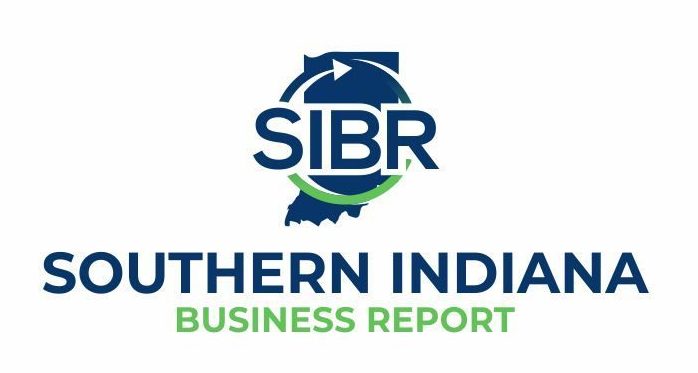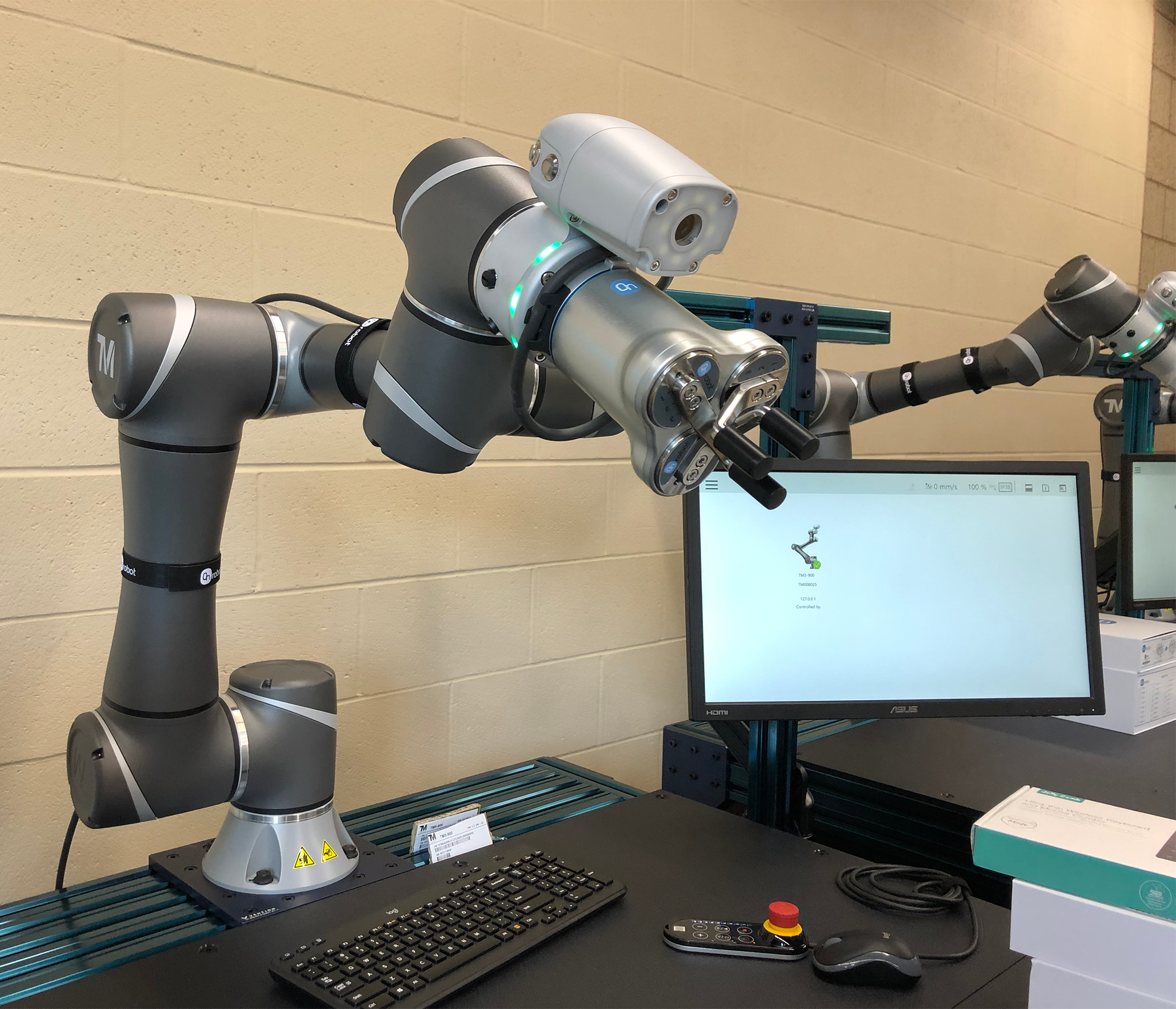By Miles Flynn | Southern Indiana Business Report
JASPER — College students and area high schoolers now have the opportunity for hands-on work with collaborative robots, or cobots, close to home at Vincennes University Jasper Campus, and Vincennes University President Dr. Chuck Johnson said the new lab and its 11 cobots are only the beginning.
The role of cobots
Cobots are gaining wider adoption in advanced manufacturing as tools to support and improve the efficiency of human workers. “They’re designed to work alongside human beings,” Johnson told Southern Indiana Business Report.
So, rather than replacing workers, cobots are seen as additional support for the humans, giving them an extra set of hands in areas such as repetitive tasks. When compared to traditional robots in manufacturing, cobots are smaller, more easily moved, and able to be reprogrammed to perform various tasks.
Bringing cobots to Vincennes University
Johnson said the real beginning of the school’s project at happened in late 2019. At that time, Vincennes University was involved in conversations with Albert Chen, founder of Carmel-based Telamon Corporation, who approached the university about partnering on a training program focused on automation. Chen had been working with a Taiwanese manufacturer of cobots. “We were delighted to be a part of that conversation,” Johnson related.
In December 2019, Vincennes University signed an agreement with a Taiwanese school to develop the program. However, the arrival of COVID-19 a short time later created a stumbling block.
At roughly the same time, though, a new development signaled the possibility of an even more ambitious project for Vincennes University. Indianapolis-based Lilly Endowment Inc. put out a call for proposals for an upcoming round of grantmaking, Johnson said, and the school applied for a game-changer grant to help substantially expand its cobot vision. Where the initial plan had been to secure three cobots for the university’s Gene Haas Training and Education Center in Boone County, the $8 million Lilly money the school ultimately secured in March 2021 will — in part — allow for the deployment of 40-41 cobots at Lebanon, VUJC and at the main Vincennes campus. “It’s a sizable investment and one we’re quite grateful for,” Johnson commented.
Building a talent pipeline
The availability of cobots and other technologies in the Vincennes University system is viewed as a way to establish the school as hub that will help roll the tools out to neighboring areas. In addition to exposing students and employees to the offerings, Vincennes University’s strategy will allow area employers to see for themselves how they might adopt cobot technologies in their own operations through school-hosted demonstrations and workshops.
The cobots are also seen as a key component of the tech talent pipeline the school is always working to improve through its close working relationships with area industry partners. The intent is to put students on engineering, IT or other in-demand and lucrative career pathways. Another example cited by Johnson is Vincennes University’s status as the first school in the United States to develop an apprenticeship program with Amazon.
Thanks to a relationship VUJC launched approximately three years ago with Patoka Valley Career Cooperative, students at all four Dubois County high schools will also be able to engage in hands-on learning with the new cobots. And in the works at VUJC is a new summer STEM academy to give more high school students and even middle schoolers a chance to interact with technology including the cobots — a rare opportunity for young people in rural Southern Indiana. As a native of nearby Washington, Johnson is very pleased to be involved with an effort he sees as a way to ensure local people have the skills needed to work and raise their families here.




